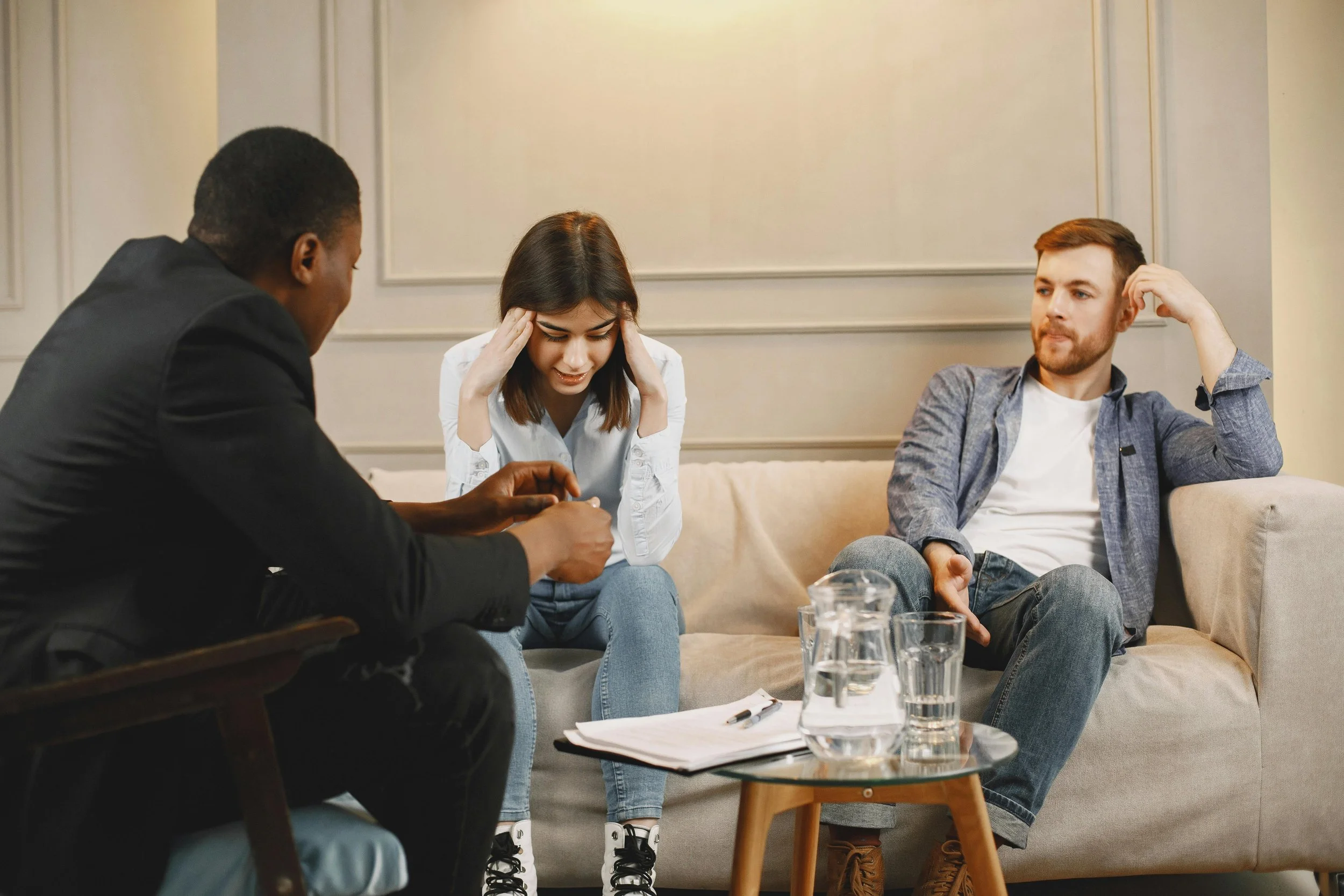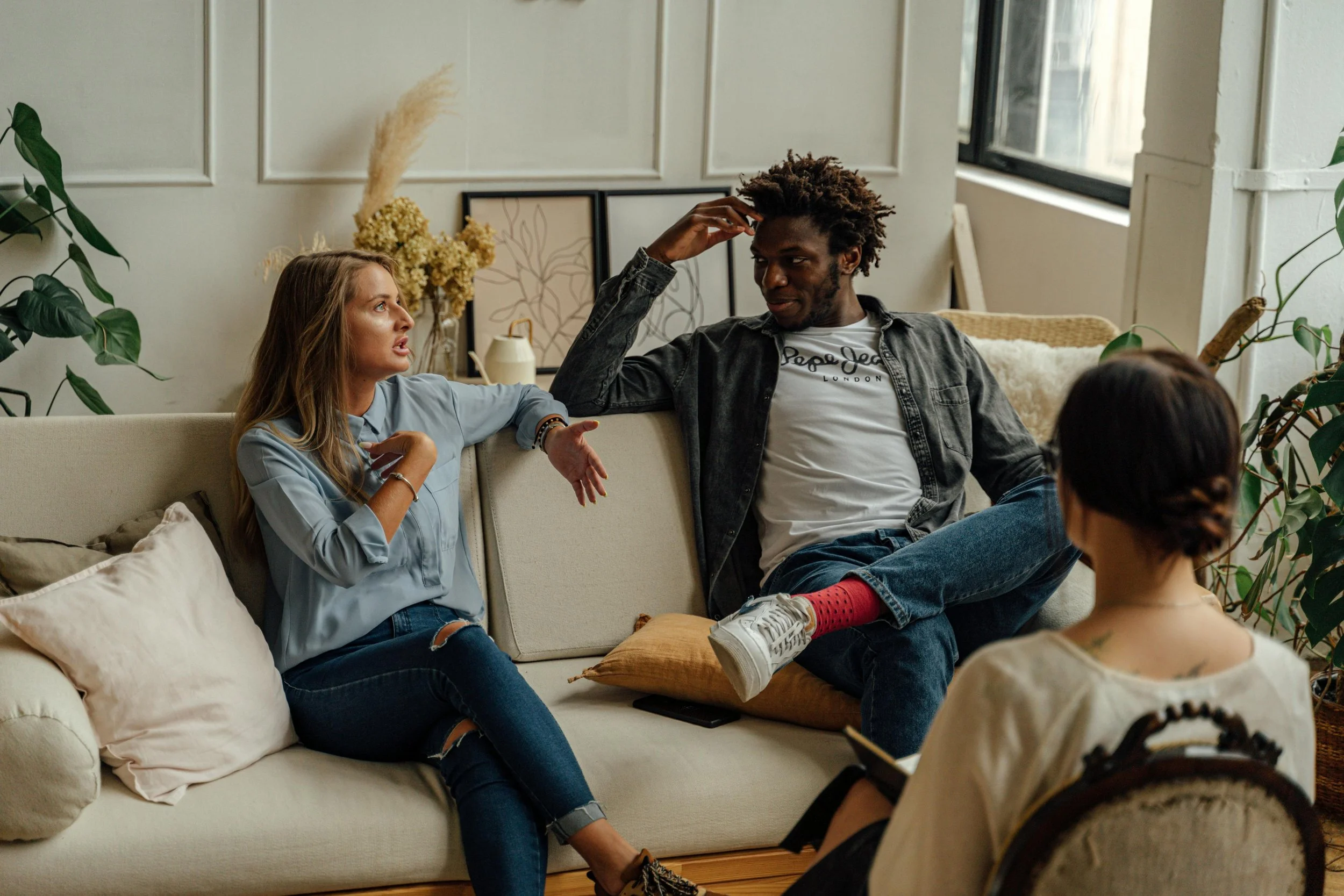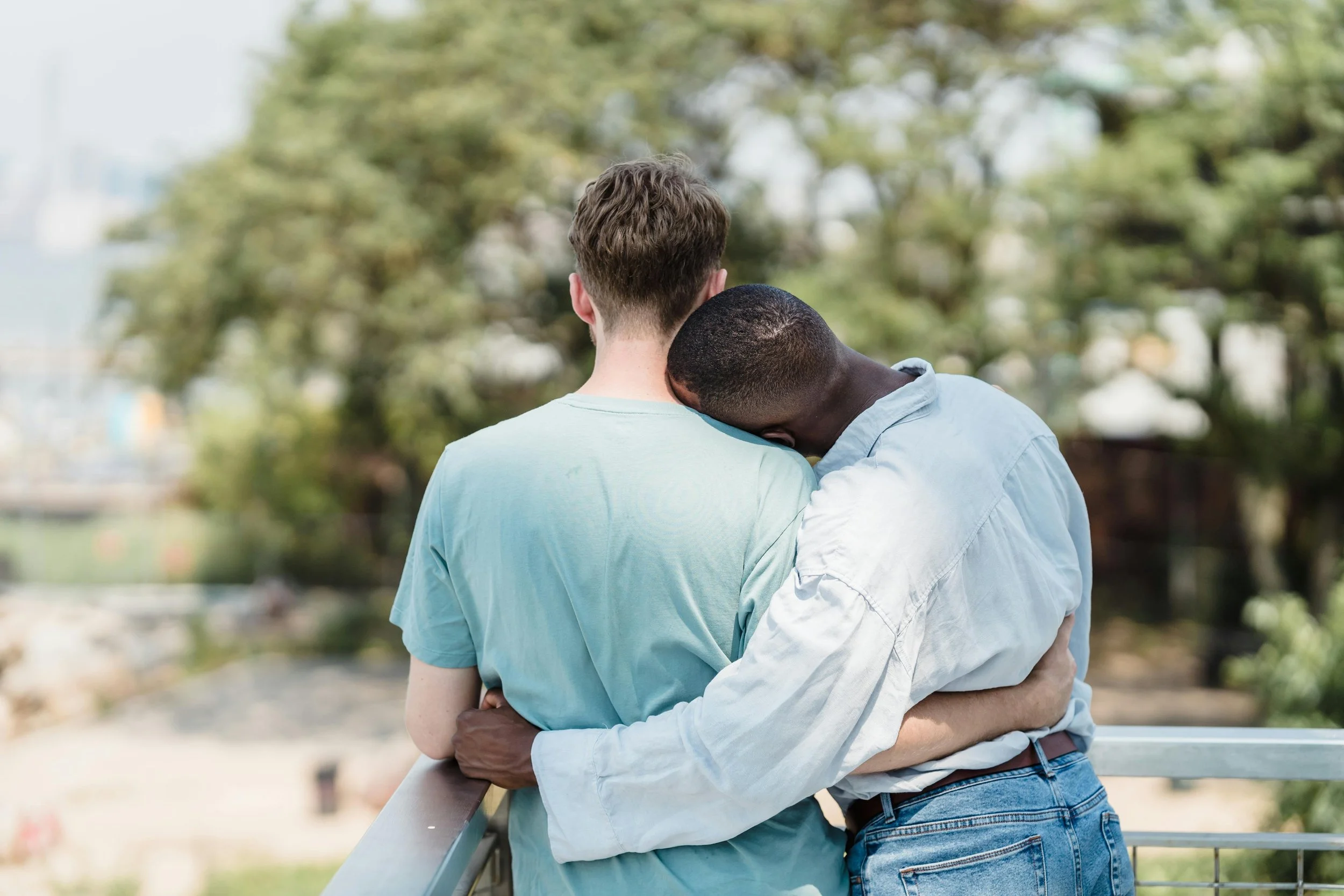Five Great Reasons to Explore Couples Counseling
Most relationships face bumps in the road. While couples can overcome problems on their own, sometimes they need a little help. Luckily, couples therapy is a very effective way of strengthening relationships. In this article, we’ll go over five great reasons to explore couples therapy. We'll also hear from Providence, Rhode Island’s Chris Jackson, MHC-A, on his work with couples.
What Is Couples Therapy?
You might also know couples counseling as “marriage counseling.” Regardless of the mention of “marriage” in this term, couples counseling is an option for everyone, regardless of marital status or relationship structure, including those in non-monogamous relationships.
Couples therapists act as impartial facilitators in your relationship, working and communicating with both partners. You and your partner define your goals for couples therapy; these goals may range from improving the functioning of your relationship and building a stronger relationship to resolving specific conflicts.
Note there’s a subtle distinction between “couples therapy” and “couples counseling.” Couples therapy focuses on long-term issues. In contrast, couples counseling helps a couple solve a specific problem. However, these lines may blur; Dyad Psychology’s Chris Jackson, MHC-A, works with couples in both short-term counseling and long-term therapy.
What Are the Benefits of Couples Therapy?
Here are five ways couples therapy can enrich your relationship.
1. Increasing intimacy and trust
Trust issues can arise within a relationship for a variety of reasons, such as infidelity or difficulty with communication. Trust is deeply related to intimacy, which refers to a sense of connection within a couple. If a relationship lacks trust or intimacy, couples may have issues with suspicion, difficulty opening up with each other, or a problematic need for reassurance.
Couples therapy rebuilds trust and intimacy in many ways. It can increase open communication, facilitate forgiveness, and allow partners to validate each other’s perspectives.
2. Communication
Chris Jackson, MHC-A, often encounters couples with communication issues. Difficulty with communication can arise for many reasons. Cultural differences can impact communication. Partners may want different things from their relationship, or have different needs. Partners may have different communication styles and not feel heard by each other.
As Chris Jackson notes, communication issues often stem from a deeper challenge in a relationship. Thus, a couples therapist can help uncover and address this dynamic. Couples therapists may also work directly with communication skills. They can teach communication strategies like active listening, and help identify and address patterns in communication that can hinder mutual understanding.
3. Conflict resolution
Some people seek couples therapy because of general relationship dynamics; others seek it because of a specific conflict, such as an affair. Unresolved conflicts can lead to lasting feelings of hurt or resentment. If you’re unsure how to move past a conflict, couples therapy is a great idea.
A couples therapist may help a couple better understand the relationship dynamics or communication styles that feed into the conflict. They can provide strategies such as active listening and help couples find a collaborative solution that makes both parties happy.
4. Helps individuals
Couples therapy focuses on improving a relationship between people. As a result, it can also help the individuals within the relationship, especially when relationship strain is connected to an individual's physical or mental health. For instance, if one partner is depressed, this can harm their relationship, in turn increasing their depressive symptoms.
Studies show couples therapy can be an effective treatment for depression—even as effective as individual therapy. Couples therapy can also help couples with individuals with PTSD, alcoholism, or borderline personality disorder. Lastly, it benefits couples dealing with medical issues like a new cancer diagnosis.
5. Scientifically proven to be effective
If you’re scientifically minded, you may be wondering what the research says about couples therapy. In fact, there’s ample scientific literature that attests to the effectiveness of couples therapy; it’s well-established that a period of couples therapy helps 70-80% of couples. In the long run, couples therapy produces full recovery after 2–5 years for 30–40% of couples. In couples who don’t recover fully, 20% still experience improvement after 2–2 years. Many of the different methods of couples therapy produce results within this range.
Qualitative research on couples therapy finds a variety of benefits. People who have participated in couples therapy mention having realizations that change their stance on their relationship and partner. They also experience changes in behavior, improved experiences in the relationship, improved communication quality, and improved functioning of the individuals and couple.
What Are Different Methods of Couples Therapy?
Couples therapists may have different approaches to couples counseling and couples therapy. One common method of couples therapy is cognitive behavioral couples therapy, which focuses on changing negative thought patterns and behaviors that can damage a relationship.
Another method is emotionally focused couples therapy, which focuses on building a strong emotional bond between a couple. Solution-focused couples counseling is a pragmatic form of couples counseling; it focuses less on analyzing the relationship and more on identifying immediate solutions to problems.
One strategy you might encounter in couples therapy is the use of “Gottman cards,” which help couples learn more about each other, fostering relaxation and connection in the therapy session. There are also “Imago exercises,” which help partners speak to each other in ways they will both be receptive to.
These are just a few methods and strategies used in couples therapy. If you’re looking for a couples therapist, make sure you sit down with a few therapists so you can find someone who works for you.
LGBTQ+ Couples Counseling
LGBTQ+ couples may face relationship challenges for many reasons. Chris Jackson, MHC-A, notes that coming out to families, navigating consensual non-monogamy, and accessing gender-affirming care are only some of the factors that can strain LGBTQ+ relationships.
LGBTQ+ couples may benefit from seeking couples therapy from someone with experience working with LGBTQ+ individuals.
Couples Counseling at Dyad Psychology
If you’re new to the world of couples therapy—or therapy overall—you may wonder what to expect. Chris Jackson, MHC-A, notes his couples therapy sessions in Providence, Rhode Island start the same way as his individual therapy sessions. You’ll get to know Chris’s approach to therapy, and in turn, he’ll get to know you.
In the first session with Chris, he meets with the couple together before speaking with each member separately. Sometimes these meetings are quick; sometimes they take most of the session. If there is any topic that a member of the couple isn’t ready to address with their partner yet—such as infidelity or wanting to leave the relationship—this will be dealt with in the future.
Conclusion
Couples therapy can increase intimacy and trust, improve communication skills, and help resolve specific conflicts. It also benefits the individuals in a relationship, including in their mental health, and is scientifically proven to be effective.
Frequently asked questions
Does couples therapy really work?
It's well-established that a course of couples therapy helps 70-80% of couples. In the long term, couples therapy can produce full recovery after 2–5 years for 30–40% of couples.
What are the benefits of couples therapy?
Couples therapy can increase intimacy and trust, improve communication skills, and help resolve specific conflicts. It also benefits the individuals in a relationship, including in their mental health, and is scientifically proven to be effective.
What is couples counseling like?
At Dyad Psychology in Providence, Rhode Island, Chris Jackson, MHC-A, starts by introducing himself and getting to know you as a couple. There are many exercises and strategies your couples therapist may then introduce you to in order to improve the functioning of your relationship.



